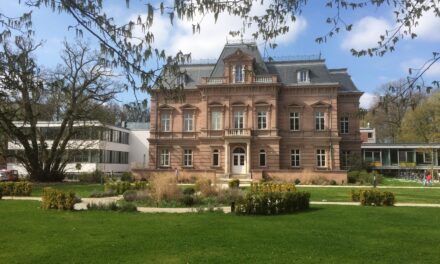A radical new curriculum – I am really excited about the new Curriculum for Wales (2022), which has been the focus of considerable media attention over the past few years. From the beginning (with Donaldson’s Report, Successful Futures, 2015), it was claimed that the new curriculum for 3- to 16-year-old learners would be radically different, helping to ‘shape a successful and exciting future for the children and young people of Wales’. Now, in 2020, the new statutory curriculum guidance has been largely completed, devised mainly by teachers working in pioneer school contexts, which in itself has been a radically different approach.
With the focus always on the identified ‘four purposes’ of education in Wales, all aspects of teaching and learning will help enable children and young people to be:
- ambitious, capable learners ready to learn throughout their lives;
- enterprising, creative contributors ready to play a full part in life and work;
- healthy, confident individuals ready to lead fulfilling lives as valued members of society;
- ethical, informed citizens ready to be citizens of Wales and the world.
Although national statutory guidance will support these ambitions, providing a shared overall shape and coherence, individual schools and teachers will be responsible for creating and implementing their own school curriculum, making it relevant to their local contexts. This is another radical aspect of the new curriculum, which gives teachers and schools much greater autonomy.
What does this mean for Religious Education?
Six Areas of Learning and Experience (AoLE) will make their distinctive contributions to these ‘four purposes’ of the Curriculum for Wales, and Religious Education has been placed in the Humanities’ AoLE, alongside History, Geography, Business Studies and Social Studies. In addition to Religious Education’s contribution to the Humanities’ AoLE, Religious Education is also able to contribute to the other five AoLEs (with obvious connections with the Health and Well-being AoLE, for example). This is all part of a drive towards a more integrated approach to teaching and learning.
Religious Education will remain a statutory subject, although the Welsh Government is changing the name to Religion, Values and Ethics (RVE), and this change has produced a mixed response from organisations concerned with Religious Education in Wales and England. It is understood, though, that the name change will not alter the scope of the subject.
It is also anticipated that this autumn, the Welsh Government will be consulting on the draft Religion, Values and Ethics Supporting Framework Guidance. This has been produced by a group whose members come from a variety of settings and organisations of relevance to Religious Education. It is hoped that the guidance will be received positively by the Standing Advisory Councils on Religious Education (SACREs) in Wales (which are responsible for the locally agreed syllabi for the 22 local authorities), as well as by the Anglican Church and the Catholic Church, who have their own denominational requirements for Religious Education in their voluntary-aided schools.
A personal experience
While working on a recent Welsh Government commissioned Religious Education resource to support the new curriculum, I had the opportunity to explore the potential of Religious Education working in a more integrated way within the Humanities’ AoLE. The fruit of this endeavour is found in the storybook series for 8- to 11-year old learners entitled Randalph’s Spiritual Quest and Search for Meaning. The experience was both creative and rewarding – Religious Education can enrich the Humanities and the Humanities can stimulate exciting new ways of doing Religious Education.
Despite this positive experience (and reflecting on the processes that I needed to go through as a Religious Education specialist),I am very much aware that there are some significant issues that will require careful thought and action, if the potential of the Curriculum for Wales is to be realised.
Some significant issues
If the potential for the Curriculum for Wales is to be realised, four issues need to be addressed and these are of immediate concern for Religious Education.
- The development of appropriate subject specialism in Religious Education among teachers – without this, the potential contribution of Religious Education within the Humanities will be lost and there would likely be preferences for focusing on History and Geography, for example.
- The creation of quality Welsh-medium and English-medium resources for teachers and learners to support Religious Education within the Humanities AoLE and the wider curriculum – these resources need to be non-prescriptive, while inspiring teachers and schools (reliably) as they put together their own curricula.
- A change of mindset and practice among educators in Wales – there is a need to approach education differently and to have the imagination, courage and rigour to experiment meaningfully as part of a learning journey.
- The conducting of research to inform and evaluate teaching and learning in the curriculum – research was an important part in the development of the Curriculum for Wales and it is a significant feature in the curriculum guidance documents, and there is value in this practice continuing and being strengthened.
There are many signs that Religious Education may have a successful future in Wales, but this is not inevitable with the publication of a new curriculum alone. What happens now in Initial Teacher Education (ITE) and the Professional Learning for teachers already in post is crucial, as well as the research expertise and capacity of universities and other research institutions in Wales. All of this requires well-targeted Welsh Government support, which includes financial investment.
This text was written by
The Revd Dr Tania ap Sion
Secretary and Executive Member of ICCS
Executive Director of the St Mary’s Centre, Wales
Reader of Religions, Humanities and Education at Bishop Grosseteste University




